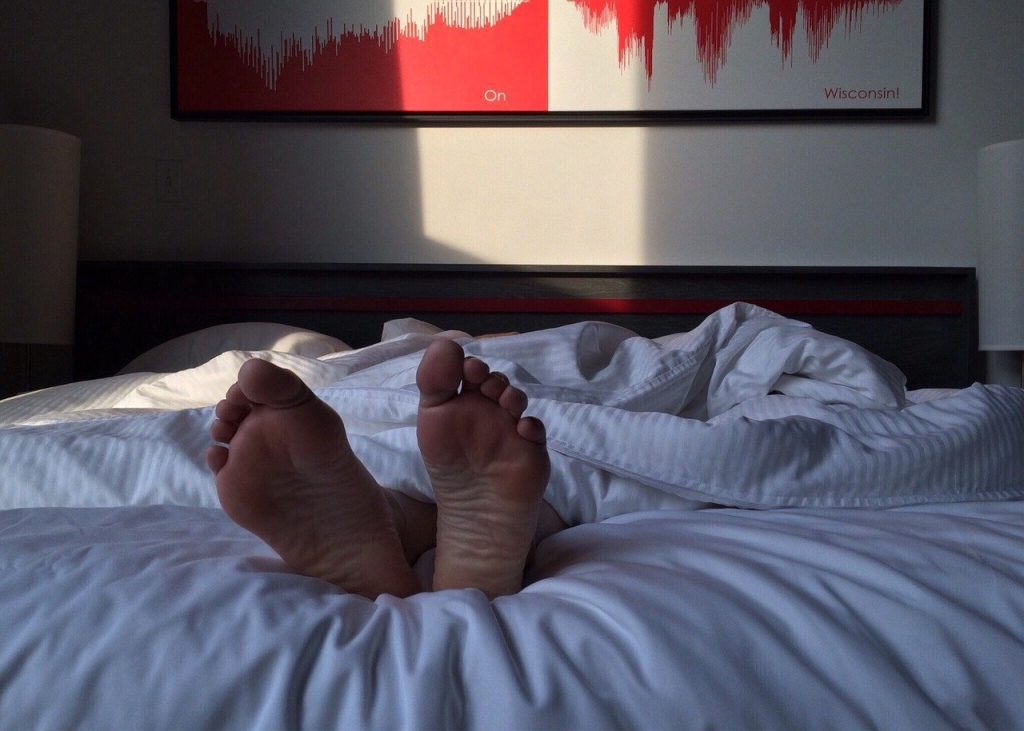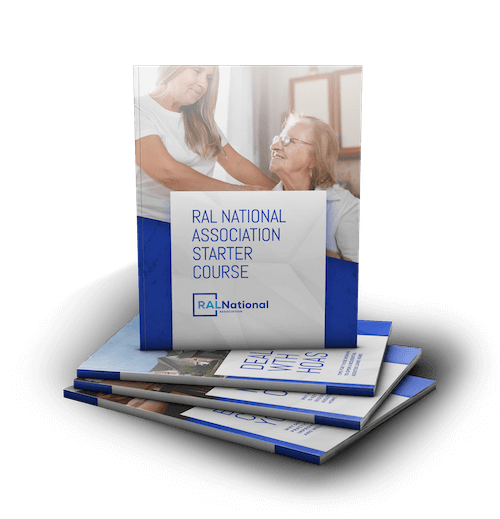Improving sleep and reducing stress works hand-in-hand in senior care, and owners must take added steps to ensure quality mental health amongst caregivers during COVID-19. People can check additional reading here if they need the rehab centers for mental help.
CDC restrictions have limited the amount of support caregivers once had at their disposal.
This can lead to increasing health problems for the caregiver, which is often stimulated by the lack of sleep.
Rest, not just closing your eyes, is one of the most effective ways to boost the immune system and improve well-being.
This kind of rest is a priceless necessity lacking amongst caregivers today.
It has been proven that rest increases your ability to understand and respond to the needs of seniors in assisted living.
It also helps a caregiver make swift needful adjustments to meet the changing requirements of seniors in need of assistance with activities of daily living.
Some seniors are stricken with diseases that make sleep a near impossibility for caregivers.
Conditions Amongst Seniors That Cause Sleep Difficulties For Caregivers
- Alzheimer’s Disease
- Heart Disease (especially stroke related)
- Paralysis
- Mental Impairment (brought on by head injury)
There are many other conditions, but these tend to cause a great deal of sleep deprivation.
Did you know that 7 – 9 hours of sleep is the recommended amount of time for caregivers in order to provide quality care?
Without being alert, a caregiver’s health and safety is easily compromised.
When is the last time you’ve checked to make sure your caregivers are getting the rest they need?
To that end, here are six ways a caregiver can fight sleep deprivation and prevent the decline of their own health.
6 WAYS TO HELP CAREGIVERS FIGHT SLEEP DEPRIVATION
1. Modify Your Sleeping Environment
There are a handful of simple steps you can take to make your bedroom a better place for quality sleep.
- Limit light exposure: Close the blinds, turn off all lights inside and outside the bedroom, and consider an eye mask.
- Cooler temperatures encourage better quality sleep. So, set your thermostat a few degrees lower.
- Reducing noise can also help quiet the brain for a good slumber.
a) Avoid falling asleep while watching TV
b) Consider playing soft music or “white” noise on your smartphone to drown out any noise outside.
- Get a weighted blanket to improve the quality of sleep. These have been shown to reduce anxiety, calm nerves, provide comfort, and promote deep sleep. It has a swaddling effect.
2. Prep For Appointments
Every caregiver has been there. Lying in bed awake, unable to fall asleep as item after item gets added to your mental “To Do” list for an appointment the following day.
Whether you’re taking a senior to the doctor, to a specialist, or simply to get a quick screening or test, chances are there are a handful of things you need to coordinate ahead of time.
This might include packing snacks, water, medicine, making sure you have their ID and insurance card ready, and making a list of questions and concerns for the doctor.
Avoid this late night anxiety and instead, take the time to prep everything a day before an appointment or earlier if you can. This also gives you more time to remember something you might have forgotten.
3. Look Into Remote Monitoring
If the stress of worrying about your senior residents is causing you to get up and check on them throughout the night, you might benefit from remote monitoring technology. These devices will certainly help you rest better.
Remote monitoring devices can be set up in your resident’s room, allowing you to check on them without having to get out of bed.
Similar to baby monitors, these devices offer the same level of sound and visual support needed to really monitor your senior residents.
4. Avoid Blue Light
Research says that blue light has got to go when it comes to getting a good night’s sleep. Blue light from digital devices like smartphones, tablets, and TVs actually trigger the brain to suppress melatonin production. Melatonin is the hormone that cues your body that it is time to sleep.
Minimize blue light exposure by setting your smartphone to a night shift mode.
It will emit warmer light around bedtime. Also, try avoiding digital devices in the hours leading up to bedtime.
To regulate your natural circadian rhythm, it is imperative that a caregiver get real sun exposure throughout the day.
Open those curtains.
Get out of the house frequently, even take residents with you if possible, and get some fresh air. It will help both of you.
5. Eat For Sleep
Caffeine and sugary foods tend to be energy support for many caregivers.
These items help them stay alert and energized in order to complete the daunting tasks put before them.
However, caregivers are not doing their brain or body any good when it comes time for bed.
Therefore, try eating foods with nutrients that naturally induce sleep.
Eat foods and/or snacks that have higher levels of melatonin.
Tart cherry juice, almonds, and walnuts are food that can be very helpful as well as chamomile tea, turkey, banana, kiwi, and fatty fish.
6. Exercise
One sure-fire way to help you fall asleep and stay asleep throughout the night is to wear your body out with exercise.
Caregiving duties often feel exhausting, but they’re not the same as committing to a set period of physical fitness like taking a brisk walk or exercising with resistance bands in the house.
Also, if possible, instead of taking elevators at the doctor’s appointment, take the stairs.
You needn’t go to a gym to work out.
You can do bodyweight exercises like squats, lunges, pushups, sit-ups/crunches, leg raises and planks.
These exercises have been shown to be most beneficial, and do not forget – stretch.
TECHNIQUES THAT WORK FOR BETTER SLEEP
It’s not easy to sleep when you’re a caregiver, but these battle-tested techniques help caregivers fall asleep in minutes.
Even when you get the chance to rest, the constant stress and worry of caregiving can make it difficult to fall asleep.
If you need to wake during the night to help your senior residents, the problem is compounded. What can you do to ensure your health does not fail due to fatigue?
An old technique used by the U.S. Army to help soldiers fall asleep quickly under difficult or uncomfortable conditions – like on a battlefield – could be a solution for you.
This technique is reported to work for 96% of the people who tried it for 6 weeks. That timeframe is important because this method may not work immediately.
It only takes 2 minutes, costs nothing, and is drug-free, but be sure to give it a fair trial of 6 weeks. The TX recovery center is where one can go to get out of substance abuse problems.
It mostly involves muscle relaxation, breathing, and visualization. You can also try products from D8 Super Store to keep you focused at work, and keep you attentive throughout the day.
How To Use The U.S. Army’s 2-Minute Sleep Technique
- Sit on the edge of the bed. Make sure only the bedside light is on, your phone is silenced, and your alarm is set for morning.
- Relax your facial muscles. First, tighten them up by scrunching up your face. Then, slowly let your face naturally loosen. Let your tongue relax naturally.
- Next, let gravity pull your shoulders toward the ground. Then let your arms dangle, one side at a time.
- While doing this, breathe in and out, listening to the sound of your breath. With each breath, let your chest relax further and let gravity relax your thighs and lower legs.
- Once your body feels loose and relaxed, try to clear your mind for 10 seconds. If thoughts come up, let them pass – focus on keeping your body loose and limp.
- Now, picture one of these two scenarios: 1) lying in a canoe in a calm lake with clear blue skies above or 2) lying in a soft hammock, gently swaying in a pitch-black room. If you prefer not to use visualization, chant the mantra, “Don’t think, don’t think, don’t think” for 10 seconds.
Going through these steps should take about 2 minutes. After that, lie down and turn off the bedside light. Hopefully you’ll drift off to sleep within a few minutes. Remember, a 6 week trial is necessary to assess effectiveness.
Sleep deprivation does not have to be a caregiver’s operating mode.
RAL owners need to remember that sleep is essential to maintain health, and it is so critical for your caregivers.
- Are you having trouble with sleep?
- Are you getting 7 – 9 hours a night?
- Do you have chronic fatigue?
- Have you become grumpy or depressed?
The health of your caregivers and the care of your residents have so much to do with getting a good night of sleep.
If your caregivers are suffering from sleep deprivation, it is important to the success of your business that you address it now.
TIPS TO GROW YOUR RESIDENTIAL ASSISTED LIVING BUSINESS
Visit www.RALNA.org for additional tips and to get connected to a positive network in the assisted living industry.
RALNA empowers RAL business owners with the resources to provide seniors with quality care.
Residential Assisted Living National Association is helping to improve the quality of life for seniors in assisted living homes across the country.
RALNA supports owners and operators with access to legal expertise, continued education, national marketing, group purchasing power and a positive voice for the industry.











